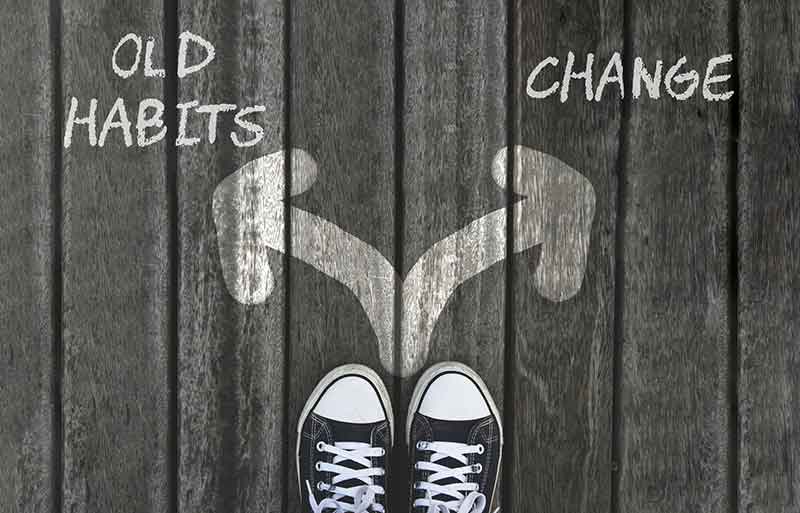Change Is a Mindset

You want to look better, feel better or improve your health. You feel it in your bones that it’s time for a change.
But overhauling your day-to-day lifestyle in short order can be hard. Sweeping goals such as “lose weight,” “get fit” or “eat better” are popular resolutions. But the truth is such resolutions can fail quickly.
A simpler (and easier) approach can be to translate goals into habits and then build better health one habit at a time.
People are already good at forming habits. Research has suggested about 40% of our daily lives is made up of behaviors we do in specific contexts, often without thinking — that is, habits!
But building new, healthy habits (and letting go of unhealthy ones) takes preparation. The best intentions can fall short along the way if you lose focus on why a behavioral change is important. Don’t lose sight of what triggered your decision to make this effort.
Focus on the ‘Why’
What made you determined to improve your health, fitness or mental well-being? Maybe you had to turn down an opportunity to go hiking, which you used to love. Perhaps stress, or the symptoms of a chronic condition, are getting the better of you. Or wouldn’t it be nice to be able to play softball with your kids? Any of these reasons could solidify your commitment to making a change.
Please Yourself
Be honest about why you want to lose weight or improve your fitness level. Sure, your health care professional is right that you will lower your risk of heart disease. But you’ve always known this — and it hasn’t inspired you to exercise or eat more healthfully. Past efforts to change may not have worked because you were responding to someone else’s rationales.
What would make you happy? Research shows that people may be more likely to pursue a goal if they freely choose it themselves. Your family urges that you’ll live longer if you drop those pounds. But maybe looking great at your daughter’s wedding or being able to play tennis again is a more effective motivator for you. And that’s OK!
Similarly, new healthy habits should be things you are happy or comfortable doing. If you are going to boost your veggie intake, don’t include Brussels sprouts if you can’t stand Brussels sprouts. Add in other veggies you like instead. If jogging makes your knees or feet hurt, then don’t start (or restart) a jogging program.
Start with a lighter physical activity, such as stretching, or join a local yoga class.
Getting in the Groove
Embracing change can be uplifting. Project ahead to that time when you can get through the day without pain, can fall asleep without medication or pick up a grandchild. In clarifying what matters most to you, you’ve set the stage for planning a strategy to adopt healthier habits.





